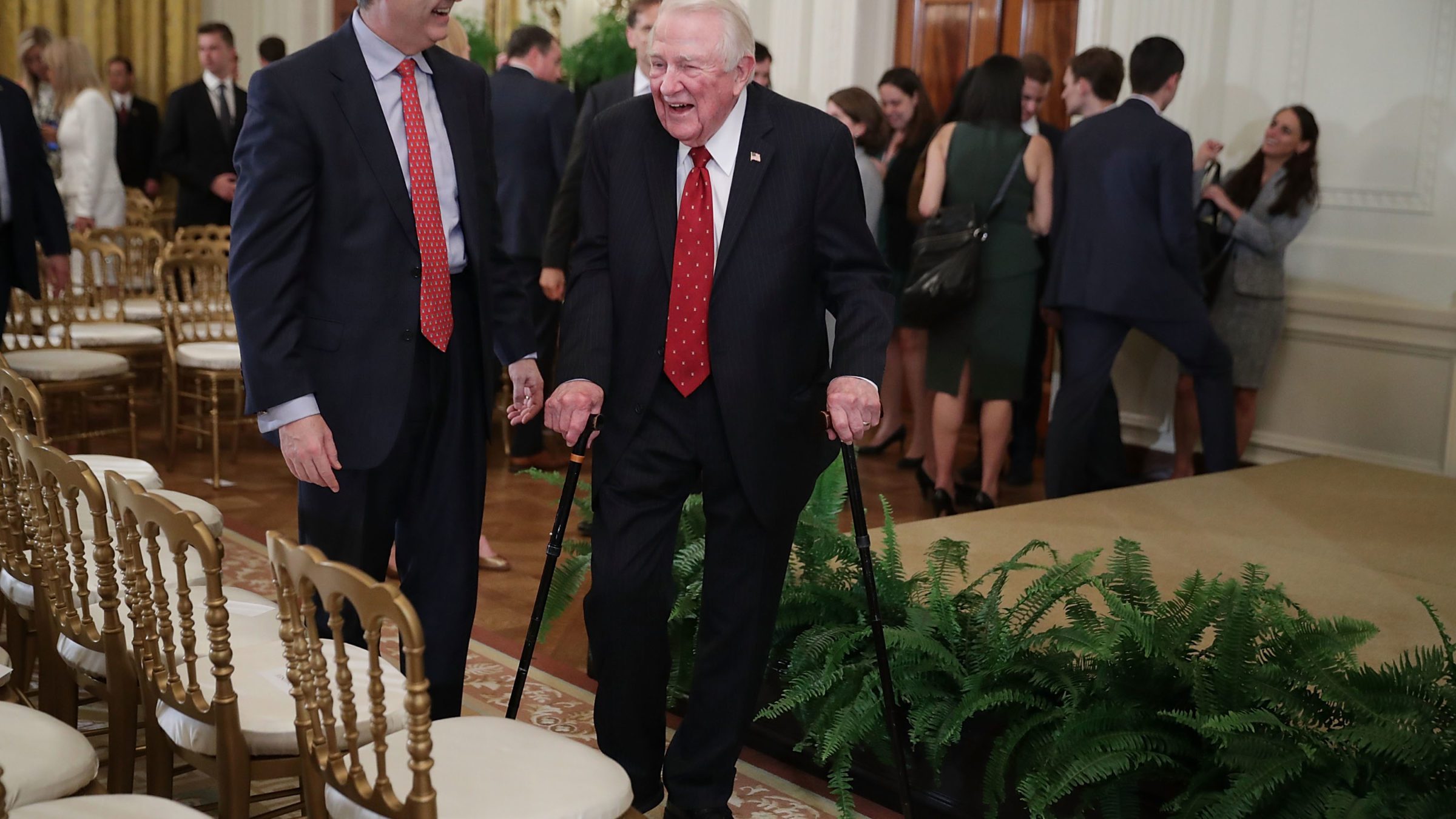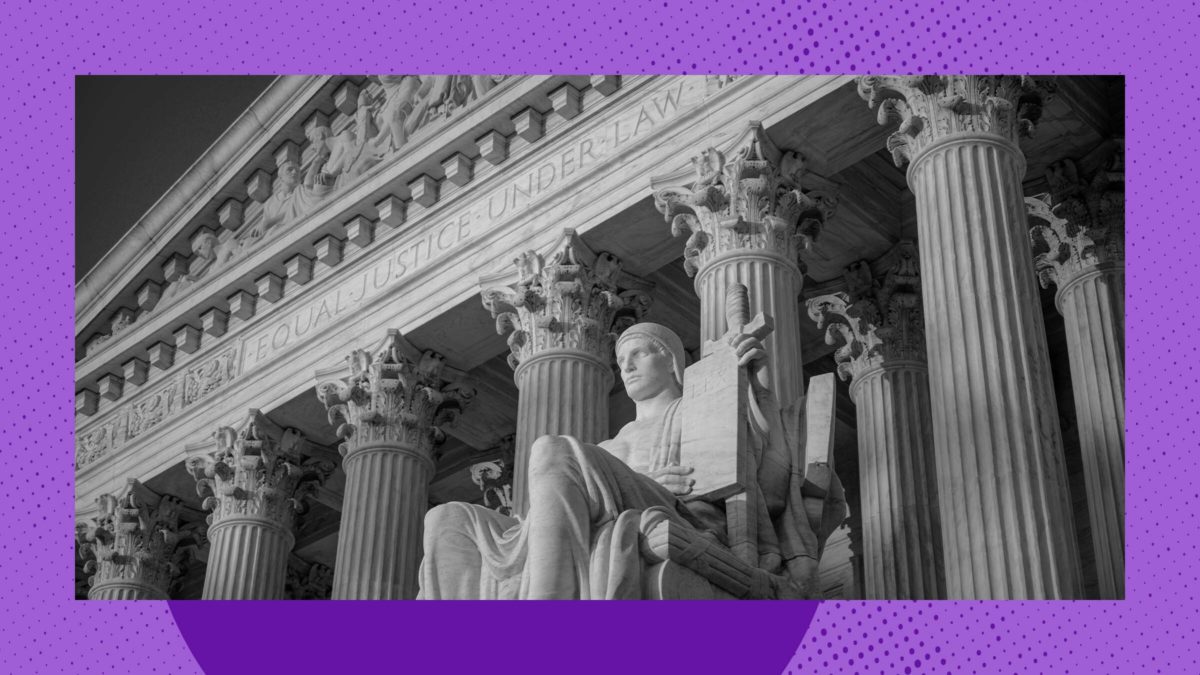Last month, the Supreme Court agreed to hear oral arguments in Sackett v. Environmental Protection Agency, a case about the legal definition of “wetlands” under the Clean Water Act. The real-world stakes, however, are far higher. The lawyers from the Pacific Legal Foundation, which represents the Sackett family, are using the couple’s seemingly mundane land dispute—whether they can fill in parts of their Idaho property with gravel—to narrow the scope of what lands and waters the EPA can regulate. A ruling for the Sacketts could weaken the EPA’s power to enforce laws like the Clean Water Act going forward.
This is the second time that PLF will appear before the Court on behalf of the Sackett family; back in 2012, the Court ruled unanimously that the Sacketts had the right to legally challenge the EPA compliance order against them. The Sackett family’s second appearance before the justices might seem unusual—after all, the Court receives around 8,000 petitions a year and grants about 1 percent of them—were it not for the influence of the Pacific Legal Foundation and the other groups submitting amicus (“friend of the court”) briefs on the Sacketts’ behalf. These organizations are crusading for a world where developers who pollute as they build will have no fear of repercussions from the government, and the Court’s pro-business justices are all ears.
Members of then-California Governor Ronald Reagan’s administration founded PLF, the first industry-funded “public interest” legal nonprofit, in 1973. According to Jefferson Decker, author of The Other Rights Revolution, PLF’s first board chairman was a fossil fuel executive on a mission to fight back against court wins affirming the government’s ability to do things like regulate air quality and protect wetlands. Public reporting of PLF’s donors is incomplete, but Koch brothers-affiliated groups and the Exxon/Mobil Foundation are among the organizations that have reported donating to the group.
That PLF was able to find the Sackett family is not an accident. As Rhode Island Senator Sheldon Whitehouse has documented, organizations like PLF shop around for “plaintiffs of convenience” to advance their vision of government subservient to business. Indeed, PLF has been fighting this Clean Water Act fight for years, and generally has a track record of pushing for deregulation in the environmental context.
PLF is just one of the many innocuous-sounding conservative legal nonprofits working to downplay the climate crisis. In 1976, Edwin Meese III, who would go on to serve in the Reagan administration in various official capacities, founded the Southeastern Legal Foundation. SLF is also a nonprofit that frequently submits “friend of the court” briefs in cases brought by peer organizations. Like PLF, SLF has been attempting to narrow the definition of “waters of the U.S.” for nearly a decade. SLF describes its mission as “defending liberty and Rebuilding the American Republic,” and warns that “the current administration and the woke will stop at nothing to tear down our Constitution.”

Edwin Meese III leaving the East Room of the White House after President Donald Trump’s announced the nomination of Brett Kavanaugh to the Supreme Court in 2018 (Photo by Chip Somodevilla/Getty Images)
The proliferation of organizations like these has created what law professors Allison Orr Larsen and Neal Devins have dubbed “the amicus machine”: carefully coordinated sets of briefs authored by like-minded interest groups. Since the 1950s, the number of amicus briefs submitted to the Court has increased by 800 percent, and the briefs themselves have become more influential than ever. The late Justice Ruth Bader Ginsburg admitted that Court clerks were likelier to prioritize a case with a high number of supportive amicus briefs because it creates “the appearance of broad support for a particular position, even if a party to the litigation has engineered the filing process for briefs on its side.”
Many people think of amicus briefs as submitted by individuals and entities separate from the parties of a case—helpful outsiders with valuable insight for the Court to consider. But increasingly, these briefs come from individuals best described as “friends of a party” instead of “friends of the Court”: people with a “dog in the fight” who cherry-pick evidence to advance their agenda, as Larsen explained to the Biden Supreme Court reform commission last year. It can be hard for the justices and their clerks to determine the reliability of these alleged facts. Many of these organizations have names that project an air of authority; the “American College of Pediatricians,” for example, is actually a conservative group dedicated to preventing queer couples from adopting children. Frequent amicus filers are often funded by the same people, but no formal mechanism exists that requires them to disclose these relationships to the Court. Late last year, a handful of House and Senate Democrats, led by Whitehouse, introduced a bill that would require more transparency from amicus filers going forward; its odds of passing in the remaining 11 months of the 117th Congress, however, are low.
The amicus briefs submitted in the Sacketts’ case show the potential perils of uncritically relying on the assertions within them. The Cato Institute brief, for example, frames the case as about property owners forced to rely on fragile government regulatory decisions “at their peril.” The SLF brief urges the Court to act before “millions more taxpayer dollars are wasted” and the court system is “subsumed with WOTUS litigation.” The U.S Chamber of Commerce’s brief urges the Court to clarify the definition of wetlands to ensure certainty for developers who otherwise might get scared off by the terrifying possibility of penalties for polluting. This would result in catastrophe, the Chamber claims, because projects needed to “upgrade our nation’s infrastructure, feed Americans, and meet our nation’s energy needs” might otherwise be abandoned by developers whose benevolence, of course, only extends as far as their profit margin.
Of course, environmental groups will surely submit their own amicus briefs in this case explaining why the legal status quo is right. But PLF and friends understand that the Roberts Court is the most conservative, pro-business Court in a century, and have already teed up the question and framing for the justices eager to hear their perspective. Michael and Chantell Sackett might sound like an ordinary couple who could be your neighbors down the street, but this case isn’t a David-against-Goliath story. It’s a well-funded vehicle designed to weaken environmental regulations and satisfy wealthy developers. Thanks in part to the power of the amicus machine, PLF could soon deliver on that promise.

